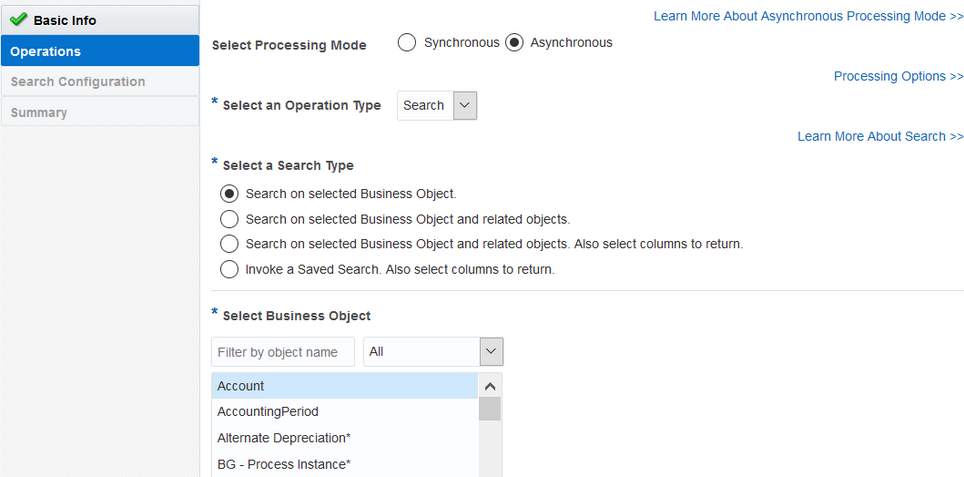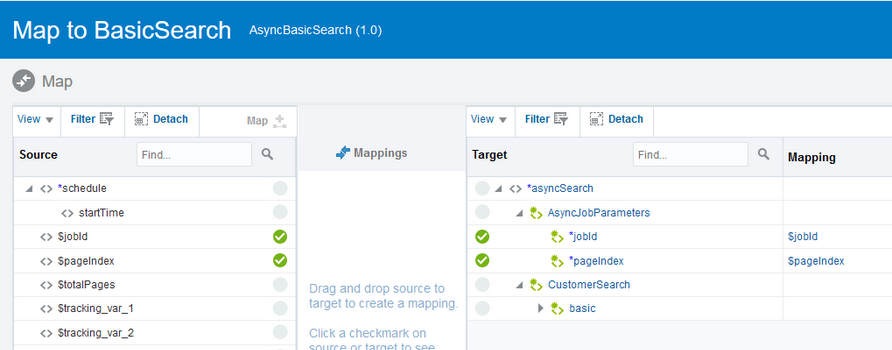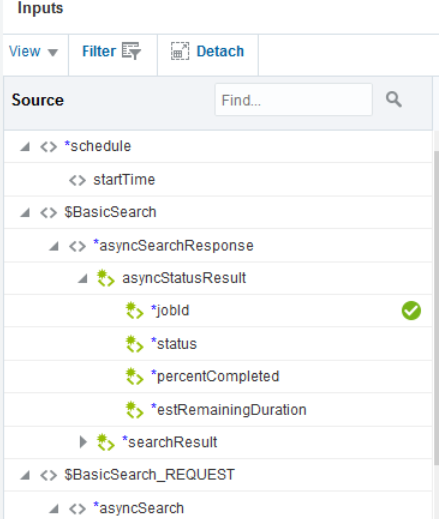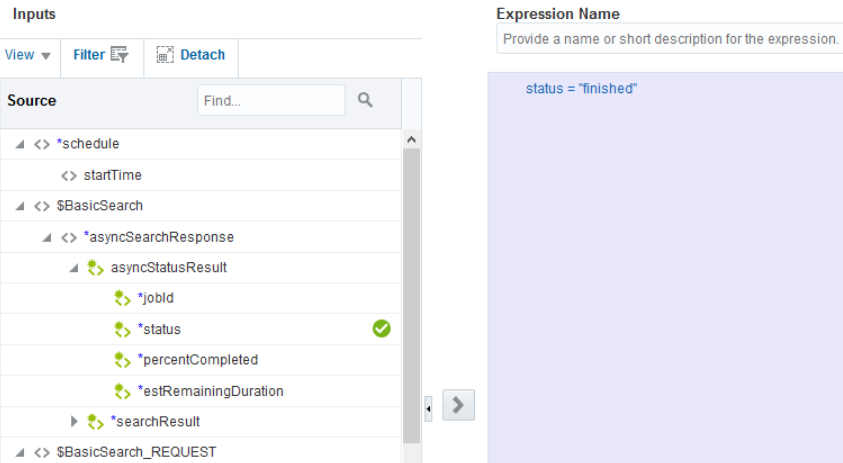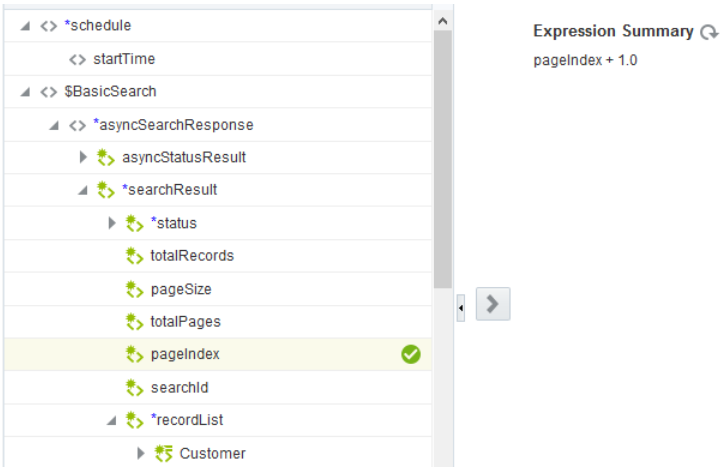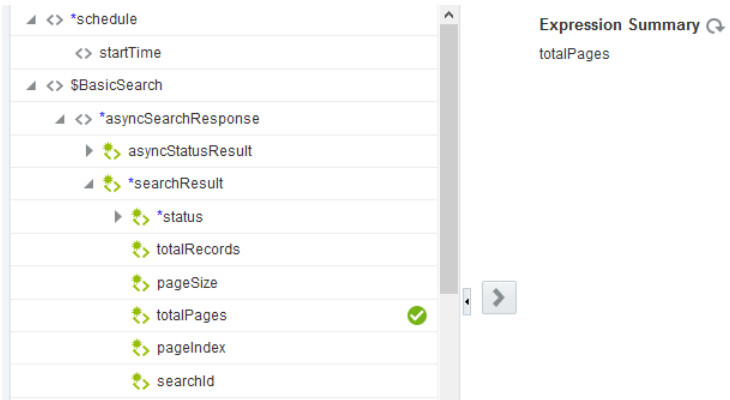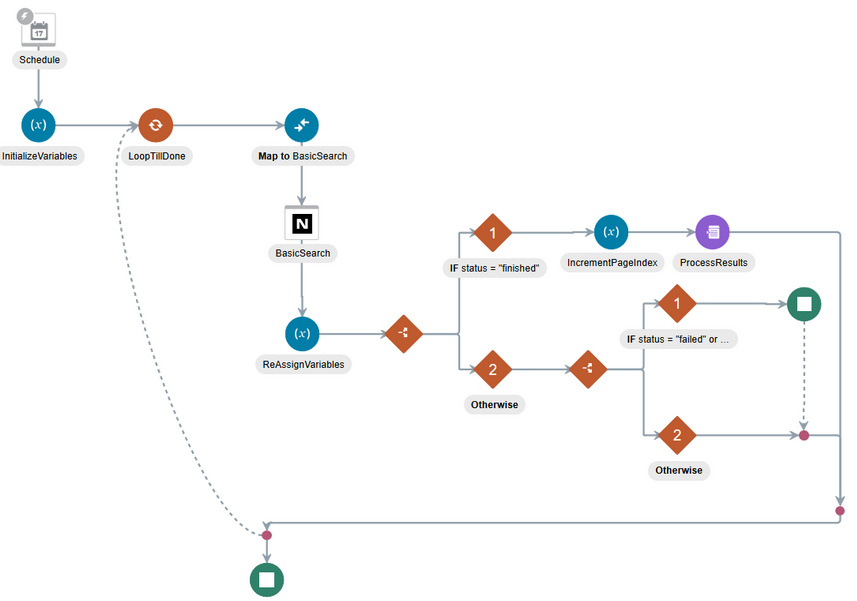Design an Asynchronous Search Operation with Pagination
This use case is similar to designing an integration with asynchronous Basic (CRUD) operations. The only difference is that the results returned are paginated. This use case uses an Oracle NetSuite Adapter invoke connection configured to make an asynchronous search operation call.
A high-level overview of the configuration steps is provided below.
